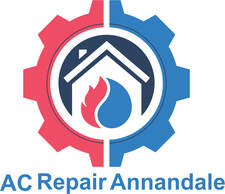License and Certifications
You should choose an HVAC business whose staff has received thorough training in the most recent industry best practices and has a track record of excellence in all areas of heating, air conditioning, and ventilation. No matter how big or small the work is, we have the knowledge, expertise, experience, and certification to manage it.
Systems for heating, ventilation, air conditioning, and refrigeration are becoming more and more sophisticated technologically. It takes a lot of study and practice to become knowledgeable about these heating and cooling systems and skilled in designing, installing, and repairing them.
As energy efficiency and pollution reduction become increasingly important, systems must also be improved, modified, or completely replaced to remain compliant. The Commonwealth of Virginia demands substantial training and experience before granting a license to work independently in this expanding sector.
The owner has also received certification from:
HVAC Contractor License Class A
The most esteemed HVAC license designation in Virginia is the Contractor License. Any job costing $1,000 or more necessitates the acquisition of a contractor's license. You should submit an application for the appropriate type of contractor's license based on the cost or value of the projects your business does.
In Virginia, if you want to work as an HVAC contractor, you need to have the right insurance and a license as a specialist in your field.
Category II License Universal technician EPA approved
The Type II EPA 608 certification is required for positions that require the maintenance, disposal, or repair of high-pressure appliances. Small appliances or air conditioning systems in vehicles cannot be repaired, serviced, or disposed of by anyone who holds this certification. It is expected of professionals who have this certification to be able to locate and safely fix a refrigerant leak. Additionally, they are skilled at properly discarding high-pressure equipment that contains refrigerants. This may occasionally involve machinery used in businesses. Commercial refrigerators, heat pumps, split-system home air conditioners, and grocery store refrigeration systems are examples of high-pressure appliances.
Systems for heating, ventilation, air conditioning, and refrigeration are becoming more and more sophisticated technologically. It takes a lot of study and practice to become knowledgeable about these heating and cooling systems and skilled in designing, installing, and repairing them.
As energy efficiency and pollution reduction become increasingly important, systems must also be improved, modified, or completely replaced to remain compliant. The Commonwealth of Virginia demands substantial training and experience before granting a license to work independently in this expanding sector.
The owner has also received certification from:
HVAC Contractor License Class A
The most esteemed HVAC license designation in Virginia is the Contractor License. Any job costing $1,000 or more necessitates the acquisition of a contractor's license. You should submit an application for the appropriate type of contractor's license based on the cost or value of the projects your business does.
In Virginia, if you want to work as an HVAC contractor, you need to have the right insurance and a license as a specialist in your field.
Category II License Universal technician EPA approved
The Type II EPA 608 certification is required for positions that require the maintenance, disposal, or repair of high-pressure appliances. Small appliances or air conditioning systems in vehicles cannot be repaired, serviced, or disposed of by anyone who holds this certification. It is expected of professionals who have this certification to be able to locate and safely fix a refrigerant leak. Additionally, they are skilled at properly discarding high-pressure equipment that contains refrigerants. This may occasionally involve machinery used in businesses. Commercial refrigerators, heat pumps, split-system home air conditioners, and grocery store refrigeration systems are examples of high-pressure appliances.

